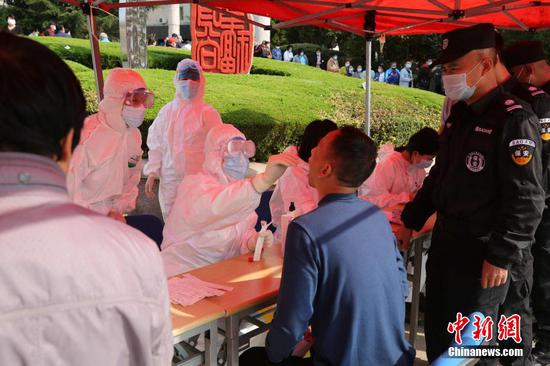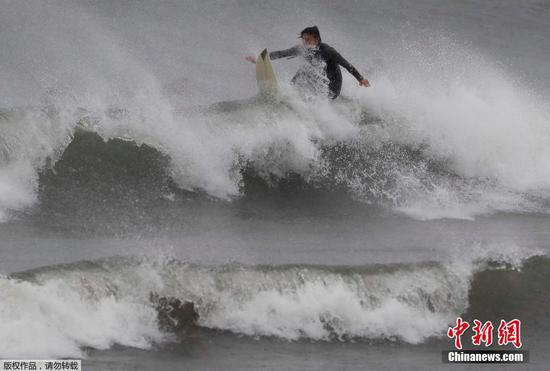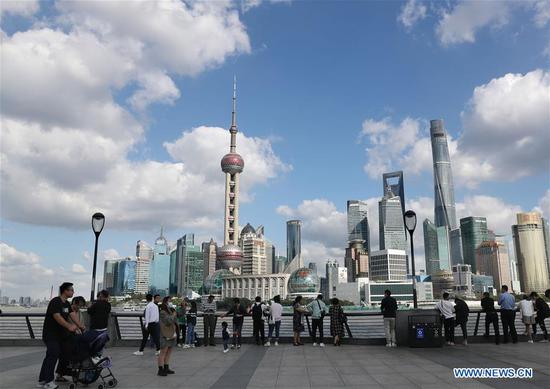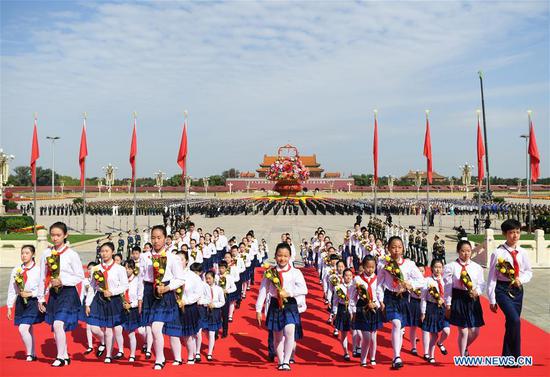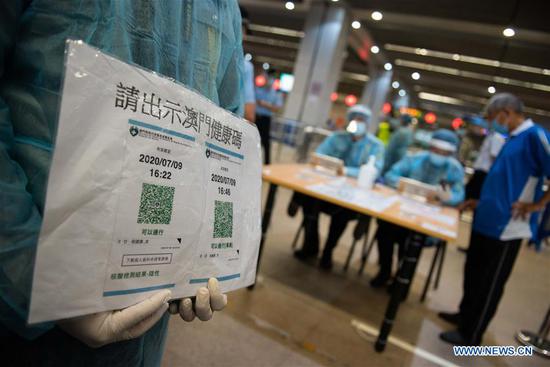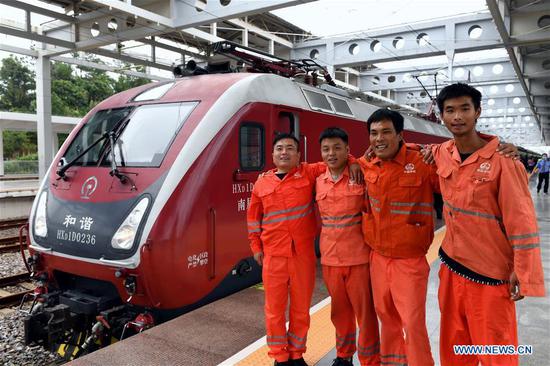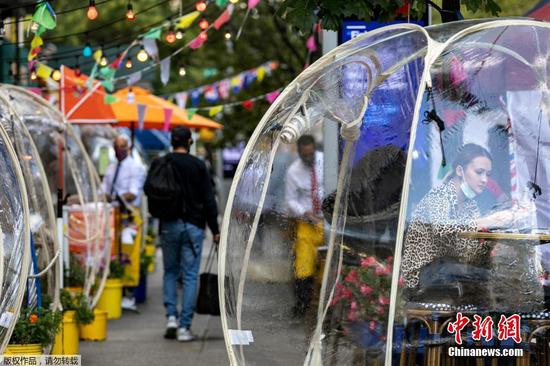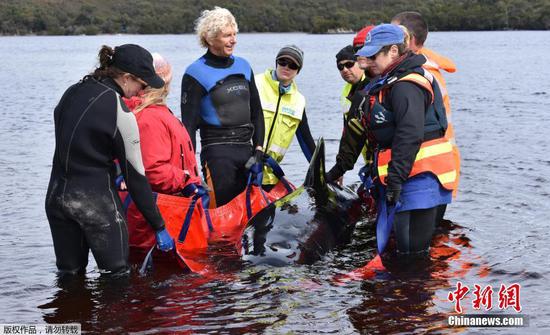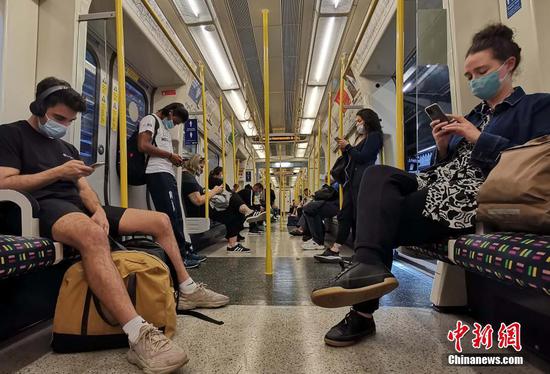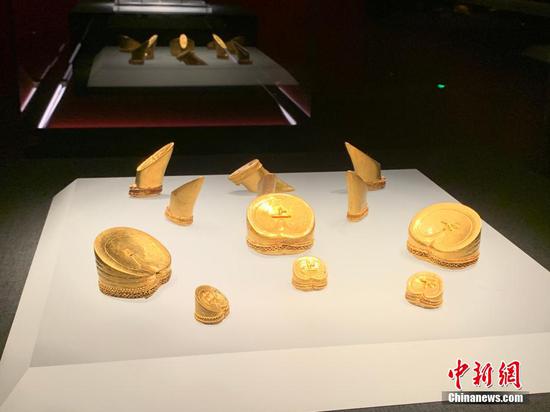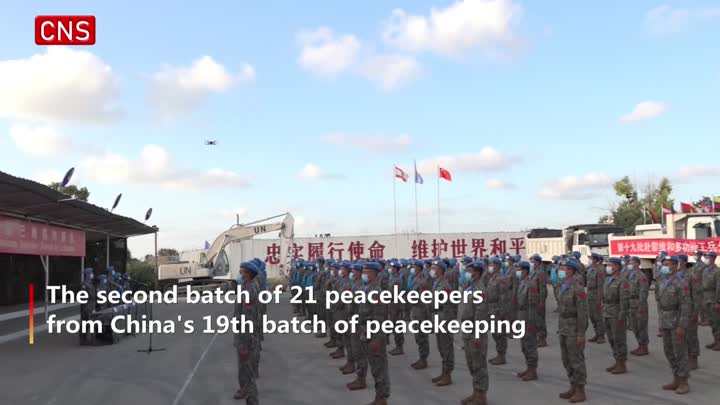
In this file photo, Hong Kong Chief Executive Carrie Lam Cheng Yuet-ngor holds a press conference at Central Government Offices on Sept 22, 2020. (PHOTO BY PARKER ZHENG / CHINA DAILY)
Hong Kong aims for cooperation that will maximize strengths of both cities
Carrie Lam Cheng Yuet-ngor, chief executive of the Hong Kong Special Administrative Region, said she envisions collaboration between Shenzhen and Hong Kong in the field of the "new economy", encompassing areas such as innovative technology and creative and design industries, in an effort that would gather momentum and rise to a higher level.
Lam spoke about her blueprint for enhancing the SAR's collaboration with its neighboring innovation and technology hub, the Shenzhen Special Economic Zone, in an interview with a Shenzhen-based television channel.
The report came in the run-up to the celebration of the 40th anniversary of the establishment of the special economic zone.
Lam said the two cities will not be in direct competition because of the lack of duplication in their respective advantages.
The Basic Law guarantees Hong Kong competitive advantages in a free-market economy, an internationally renowned judiciary and abundant professionals in service industries, she said.
She is confident that Hong Kong-Shenzhen cooperation is bound to bring shared prosperity as long as the HKSAR continues to leverage its strengths to complement Shenzhen's thriving technological advantages.
Collaboration in the "new economy" will help the two cities achieve a win-win result, said Witman Hung Wai-man, principal liaison officer for Hong Kong at the Shenzhen Qianhai Authority. The authority administers the Qianhai Shenzhen-Hong Kong Modern Service Industry Cooperation Zone of Shenzhen, a zone administered by the city to expand cooperation with Hong Kong.
Hung said Hong Kong can realize the full value of its scientific research using the industrial resources in the Guangdong-Hong Kong-Macao Greater Bay Area, while Shenzhen can promote its cutting-edge technological innovation to the world and expand its market through Hong Kong's world-class financial resources.
Hung also said that if the free flow of capital is achieved between the two cities, it will facilitate Hong Kong providing asset management services for mainland clients. That would be of great help in the mainland's international mergers and acquisitions, he said. At the same time, Hong Kong's asset management industry could also play to its advantages, he added.
Higher education is another area that Lam said she considers promising for closer Hong Kong-Shenzhen cooperation. That would pave the way for deeper collaboration in innovative technology and the transfer of research and development findings.
Lam identified a shortage of talent and land as two problem areas. If Shenzhen and Hong Kong team up, they would be very attractive to the brightest minds should their policies for attracting talent be combined, she said.
Talks with the Shenzhen government are underway to have the two cities jointly attract talent from overseas or other areas of the mainland, she said.
The goal is to make the collaboration seamless, including the free flow of travel, capital, information and logistics, she said.
Collaboration has already been ongoing.
The Chinese University of Hong Kong opened its Shenzhen campus in 2014, and the campus was able to serve 4,000 undergraduate and postgraduate students in the 2017-18 school year. It aims to have a total of about 11,000 students.
The University of Hong Kong-Shenzhen Hospital, one of the university's two teaching hospitals, opened in 2012. It has helped open up more opportunities for cooperation between Shenzhen and Hong Kong in science and technology.










